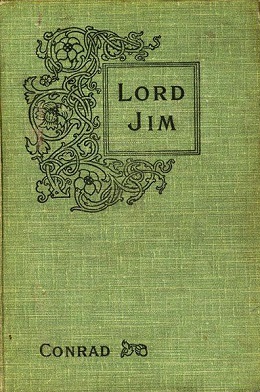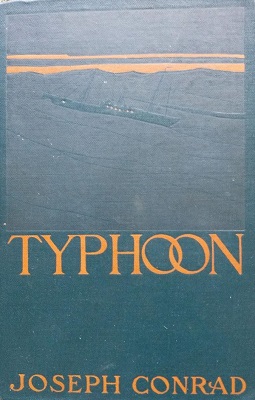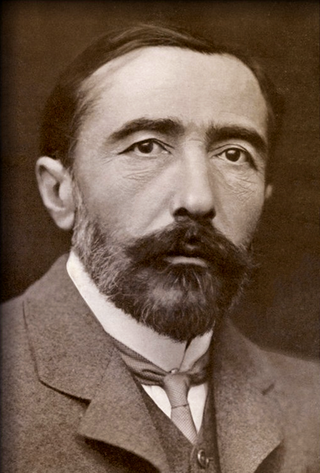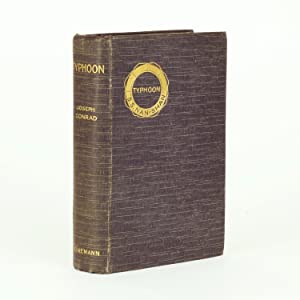Plot
The story is told as a narrative, describing the observations of a youthful commander of a merchant vessel serving in the Malay Archipelago The story opens with an apparent rivalry between two men over a young woman. The narrator-captain is a thirty-year-old newly commissioned officer employed by the Dutch East India Company. He struggles to bring some order to the ship’s fiscal affairs, whose previous commander had neglected his duties, indulging in writing obscene poetry and keeping a harlot on shore. Delayed in port, the narrator-captain often visits the vessel Diana, commanded by the patriarch Hermann who is accompanied by his wife and four children, as well as a pretty niece. The domesticity of the ship is initially reassuring to the young man.
Falk is the owner of the only tugboat in the harbor. He is in love with the niece, and suspects the narrator-captain of being a rival. He refuses to service the captain’s vessel. Falk briefly hijacks the Diana so as to keep the girl away from his presumed competitor. Falk’s suspicions are unfounded, and the narrator, after demonstrating he has no designs on the niece, agrees to support Falk’s proposal to wed the girl. A contretemps arises when Falk insists that a lurid episode from his past be first exposed: he had once murdered a man while on board a stranded ship, and resorted to cannibalism to survive. Captain Hermann, the girl’s uncle, at first finds this fact so repellent he refuses to give his consent, but ultimately relents. The couple is happily joined in marriage. [2] [3] [4]
Theme
The story is notable as one of only a few of Conrad’s work with a "happy" ending. [8] Biographer Jocelyn Baines reminds her readers that Falk "is treated primarily as a comic figure." [9] "Falk"’s opening has the same structure as two of Conrad’s previous works, " Youth" (1898) and ‘Heart of Darkness"(1899): An autobiographical tale is told at an intimate gathering of mariners, now in their maturity. [10] Literary critic Albert J. Guerard locates "Falk" among "the short personal novels of test and initiation" based on experiences "real or imagined associated with Conrad’s first voyage as captain." [11] [12] [13]
Conrad presents the Hermann family and their ship as an artificial sanctuary from the primitive, elemental realities inherent in seafaring: The inhabitants of the Diana "know nothing of the world of instinct." [14] The Hermann clan, with their self-complacency, cherish their conventionality and are content to live pure, yet "insignificant lives." [15] Jocelyn Baines describes them as "the epitome of bourgeois virtue and limitations." [16] Only one of the seven members of the Hermann family deviates from convention, the "lovely, taciturn niece" who exhibits qualities "that are raw and still vital." [17]
Reminiscent of a country cottage in its cleanliness and good order, the Diana contrasts sharply with the degenerate atmosphere that characterizes the Schomberg hotel, a den of "deceit" and "malice." The young captain finds himself suspended between these two worlds. [18]
Falk, the owner the local tugboat, represents a preternatural power. [19] Literary critic Laurence Grave provides this sketch of Falk:
Strong and inarticulate, always associated with his tug, he reminds the narrator-captain of a centaur…seen always from the waist up on deck. At the start of the action, he is a disagreeable, miserly, anti-social extortionist —and the captain’s nemesis —but his masculine force is undeniable. [20]
Falk maintains a fine impartiality in his contempt towards the moralistic Hermann and the perfidious Schomberg. Despite the tugboat captain’s flaunting conventionality and "common decency", the narrator-captain begins to appreciate Falk’s lack of duplicity, which contrasts with "the sterile atmosphere that surrounds life in the port, where the air is thick with misapprehension, half-truths, and malicious innuendo." [21] [22]
The central thematic element is examined after the tugboat operator and the narrator-captain are reconciled and Falk insists that he must reveal his secret: "I have eaten a man." An act of cannibalism, committed on a becalmed ship of starving men, emerges as a moral imperative to preserve the life of the survivors. [23]
Captain Hermann is "treated as a comic figure" when he counsels Falk that "it is the duty of a human being to starve" when faced with surviving by eating human flesh. Quickly abandoning his own moralizing, the uncle gives his blessing to the union. [24]
The denouement of "Falk" finds the protagonist triumphant, a heroic figure whose single-minded devotion to self-preservation has won him the spirited young niece of the Diana. [25]

Lord Jim is a novel by Joseph Conrad originally published as a serial in Blackwood's Magazine from October 1899 to November 1900. An early and primary event in the story is the abandonment of a passenger ship in distress by its crew, including a young British seaman named Jim. He is publicly censured for this action and the novel follows his later attempts at coming to terms with himself and his past and seeking redemption and acceptance.

"The Secret Sharer" is a short story by Polish-British author Joseph Conrad, originally written in 1909 and first published in two parts in the August and September 1910 editions of Harper's Magazine. It was later included in the short story collection Twixt Land and Sea (1912).

Typhoon is a short novel by Joseph Conrad, begun in 1899 and serialized in Pall Mall Magazine in January–March 1902. Its first book publication was in New York by Putnam in 1902; it was also published in Britain in Typhoon and Other Stories by Heinemann in 1903.
"The Lagoon" is a short story by Joseph Conrad composed in 1896 and first published in The Cornhill Magazine in January 1897. The work was collected in Conrad’s first volume of short stories Tales of Unrest (1898).

Victory is a psychological novel by Joseph Conrad first published in 1915, through which Conrad achieved "popular success."
"Youth" is an autobiographical work of short fiction by Joseph Conrad first published in Blackwood’s Magazine in 1898 and collected in the eponymous collection Youth, A Narrative; and Two Other Stories in 1902.

"An Outpost of Progress" is a short story written in July 1896 by Joseph Conrad, drawing on his own experience in Belgian Congo. It was published in the magazine Cosmopolis in 1897 and was later collected in Tales of Unrest in 1898.

Tales of Unrest is a collection of five works of short fiction by Polish-British author Joseph Conrad. Four of the five works were previously published as serials in literary journals before appearing in the volume, published in 1898 by T. Fisher Unwin.

"The Idiots" is a short story by Joseph Conrad, his first to be published. It first appeared in The Savoy in 1896. The story was included in the Conrad collection Tales of Unrest, published in 1898.

The SS Schomberg was a clipper built in Aberdeen by Alexander Hall & Co. for "the Black Ball line" for carrying large cargoes and steerage passengers, and to "outdo the Americans". When built, she was regarded as the most luxurious and well-built clipper of the period.
"The Return" is a work of short fiction by Joseph Conrad, first published in 1898 in the collection Tales of Unrest by T. Fisher Unwin.

Youth, a Narrative; and Two Other Stories is a collection of three works of short fiction by Joseph Conrad, originally serialized in Blackwood’s Magazine. The volume was published in 1902 by William Blackwood and Sons.
“The Black Mate” is a work of short fiction by Joseph Conrad which first appeared in London Magazine in 1908, and was collected in Tales of Hearsay, published by T. Fisher Unwin in 1925.

‘Twixt Land and Sea is a collection of three works of short fiction by Joseph Conrad published in 1912 by J. M. Dent publishers.
“The Tale” is a work of short fiction by Joseph Conrad, first published in the Strand Magazine in October 1917. The story was collected in Tales of Hearsay in 1925 by T. Fisher Unwin.

A Set of Six is a collection of six works of short fiction by Joseph Conrad, each appearing in literary journals between 1906 and 1908. The works were collected in A Set of Six, published in 1908 by Methuen and Company.
"The Duel" is a work of short fiction by Joseph Conrad, first published in The Pall Mall Magazine in January–May, 1908. The story was collected in A Set of Six (1908) released by Methuen Publishing. It was adapted as the 1977 film The Duellists, directed by Ridley Scott.

Typhoon and Other Stories is a collection of short fiction by Joseph Conrad published in 1903 by William Heinemann and Company.
"The Inn of the Two Witches" is a work of short fiction by Joseph Conrad, first published in The Pall Mall Magazine in March 1913. The story was collected in Within the Tides (1915) published by J. M. Dent and Sons.
“Because of the Dollars” is a work of short fiction by Joseph Conrad, first published in The Metropolitan Magazine in September 1914. The story was collected in Within the Tides (1915) published by J. M. Dent and Sons.
This page is based on this
Wikipedia article Text is available under the
CC BY-SA 4.0 license; additional terms may apply.
Images, videos and audio are available under their respective licenses.











